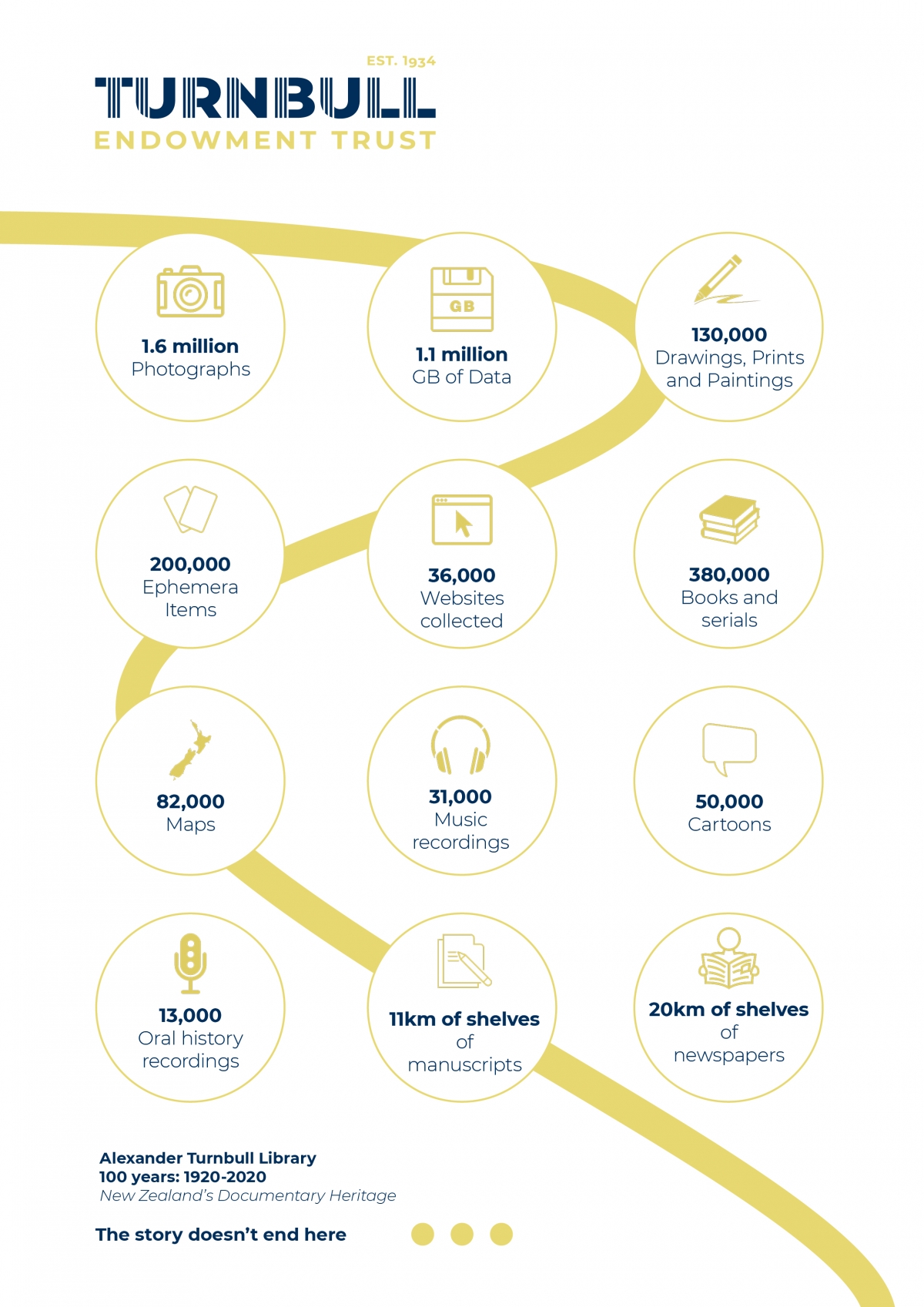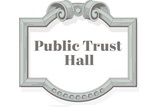What do we do?
Established in 1934, The Turnbull Endowment Trust makes sure that New Zealanders can harness the full potential of the rich collections of the Alexander Turnbull Library. The Trust invests donations and, from the resulting income, provides grants for research, exhibitions, preservation and other projects outside of core government funded activities.
Click here to view our Brochure
Who are we?
The Endowment Trust is independent, managed by a Trust Board with expert and administrative assistance from the Alexander Turnbull Library and the Department of Internal Affairs. Forsyth Barr provides investment advice and management services.
Trustees
About the Trustees
Carole Hartney was appointed to the Trust in 2024. She is a retired public relations and communications advisor. Carole was born in Manchester and studied librarianship in Leeds. Her first job was at the BBC film library in Ealing, London. She went on to work for The Sydney Morning Herald and Film Australia before moving to Wellington. She began her broadcasting career with TVNZ working in various journalistic roles on news, current affairs and magazine programmes including, Tonight, Dateline Monday, Good Day, Fair Go. In the 70s she led a volunteer team of Media Women broadcasters to provide communication training sessions for women in the community. She was editor of Wellington regional news before transitioning to public relations with Noble, Hartney and Associates and then Awaroa Partners as an executive director. She has won an IABC International Award for communications. Carole has served on the boards of Footnote Dance, The New Zealand Academy of Fine Arts, Te Aro Health, the Horokiwi Community association and on parent associations of Clifton Terrace Model School and Queen Margaret College.
John Meads, LLB (Chair)
John is a former senior partner at law firm Kensington Swan. John has practised law for almost 50 years, specialising in commercial property and private client work. John has a strong interest in the law of trusts and serves as a trustee of numerous family trusts. John became a Trustee in 2013 and Chair of the Board in 2016. John has a strong interest in the arts and culture sector and is also a current member of the board of the New Zealand Opera Foundation.
Margaret Kawharu, MNZM
Margaret Kawharu of Ngati Whatua/Mahurehure has worked extensively on the research, negotiation and settlement phases of Treaty of Waitangi claims for the past twenty years. She served on the Ngati Whatua Ōrakei Trust board for nine years, and for four years on the Ngati Whatua o Ōrakei Reserves board, a co-governance entity over what was formerly known as Bastion Point. She currently chairs Te Poari o Kaipatiki ki Kaipara, another co-governance board over the Parakai Recreation Reserve, is Deputy Chair of Nga Maunga Whakahii o Kaipara Development Trust and an inaugural member of Kaipara Commercial Development Ltd - all post settlement entities for Ngati Whatua o Kaipara since 2013.
Margaret was the Senior Māori Advisor at Massey University Auckland from 2014-18, and co-edited ‘The Treaty on the Ground: Where we are headed and why it matters’ published by Massey University Press in 2017. She is now a Ph.D candidate at the Stout Research Centre for New Zealand Studies at Victoria University Wellington. Margaret was awarded a Member of the New Zealand Order of Merit in 2012 for services to Māori.
Emeritus Professor Erik Olssen, ONZM, FRSNZ & FNZA
Erik Olssen taught at the University of Otago for 34 years, twenty of them as Professor, specialising in US and NZ History. He has been a Trustee since 1986 and has served for shorter periods on several other public bodies, including the Special Committee for the Turnbull and the Advisory Committee for the Dictionary of New Zealand Biography. He has published extensively on New Zealand history, including a biography of John A. Lee (1977), A History of Otago (1984), and The Red Feds (1988). He also oversaw a major social-history research project which has resulted in many publications, most notably Building the New World (1994) and (co-authoring) An Accidental Utopia? Social Mobility and the foundations of an egalitarian society (2011).
Professor Kerry Taylor
Kerry Taylor is Head of the School of Humanities and the foundation Director of the W.H. Oliver Humanities Research Centre at Massey University. He is an historian with a research specialisation in the history of protest and dissent in Aotearoa/New Zealand. His publications include Culture and the Labour Movement ( 1992, edited with John Martin); On the Left: essays on socialism in New Zealand (2002, edited with Pat Moloney; Te Hao Nui: Object Stories form Te Manawa (2011, edited with Fiona McKergow); The Treaty on the Ground (2017, edited with Rachel Bell, Margaret Kawharu etal).
He is a on the editorial board of the journal Labour History, and a former associate editor of the New Zealand Journal of History. He is a member of the Board of Massey University Press. He is a former Chair of the Labour Movement Advisory panel for the DNZB and the Te Manawa Museum Society. He is currently a member of the Executive Board of the Australasian Consortium of Humanities Research Centres and of the New Zealand Contemporary China Research Centre.
Neil Plimmer, MNZM
Neil Plimmer is a history graduate of Victoria University of Wellington with a career in government including 20 years and four overseas postings with the Ministry of Foreign Affairs and Trade, and 11 years as Chief Executive of the New Zealand Tourism Department. He has been active in many organisations in these fields, including appointments as President of the Pacific Asia Tourism Association and Chairman of the Pacific Cooperation Foundation.
His wide experience in the governance of trusts and foundations includes numerous bodies relating to the arts and literature. He was President of the New Zealand Book Council in the mid-1990s, Chairman of the Wellington Sculpture Trust 2001-2013, and is currently on the Board of the Arts Foundation of New Zealand. He was awarded MNZM in 2014 for services to the arts.
How is the library funded?
The Library is core funded by government as part of the National Library. For non-core funded activities, it is indebted to the generosity of its donors and the Turnbull Endowment Trust.
How can you help?
To thrive, the Trust requires a solid foundation from which to grow the resources required for grants for heritage research. Through donation and bequest, you too can leave a gift of generosity for future generations.






